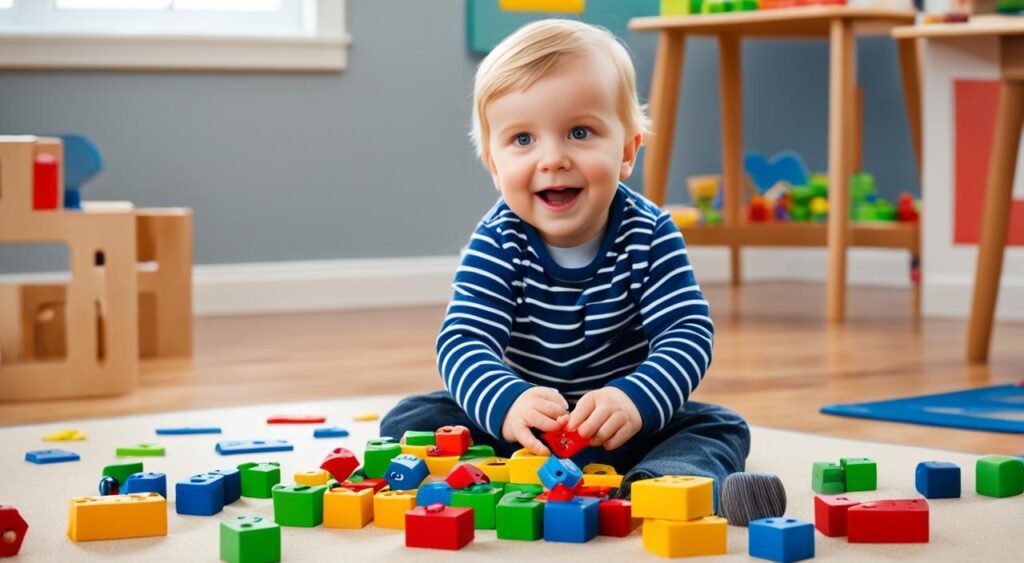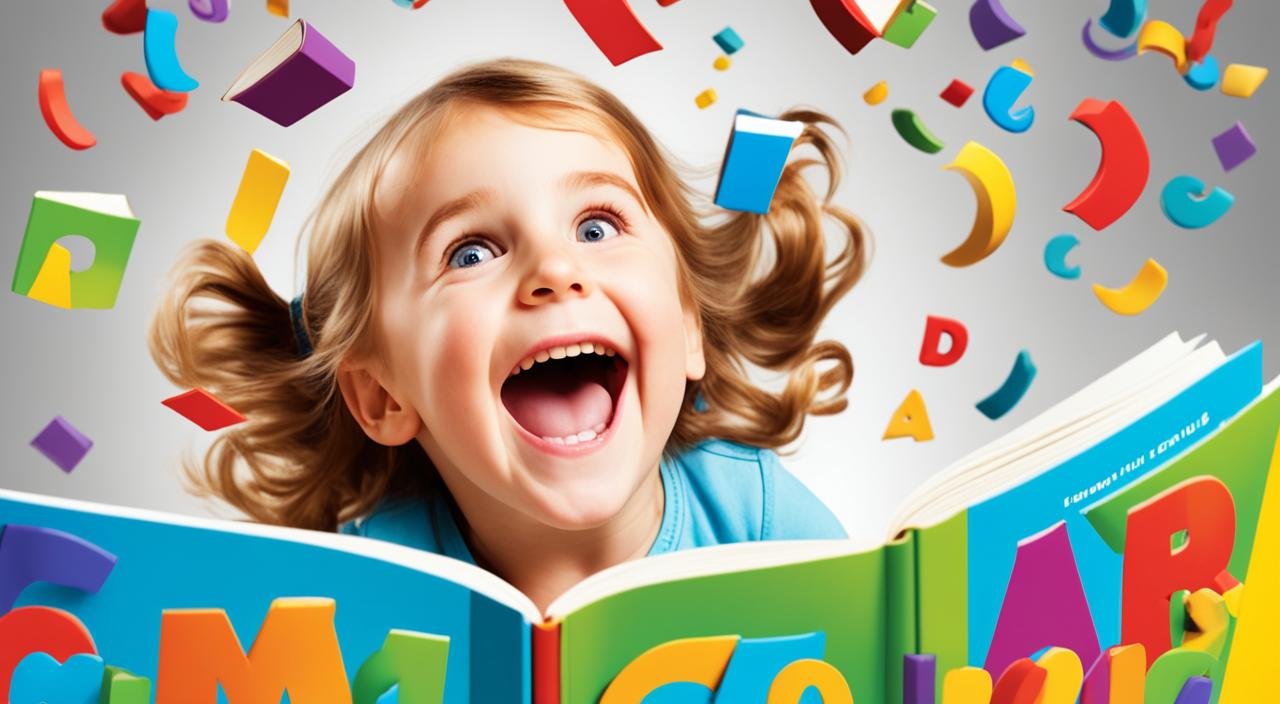By age 5, kids should have a solid base in reading, writing, numeracy, problem-solving, communication, and social-emotional skills for a good start in school. They should know the alphabet and build their vocabulary. They should also understand how rhyming and phonemic awareness work. Knowing letter-sound correspondence is key, as well as recognizing basic sight words.
For numbers, they should be able to count and recognize numbers, and learn about basic shapes and patterns. It’s also good to know a little about addition and subtraction. Kids should have started writing, be good at talking, and be creative. They should know how to follow rules and instructions, share and take turns, and talk about their feelings.
Key Takeaways
- By age 5, a child should have a strong foundation in reading, writing, numeracy, and problem-solving skills.
- They should be able to recognize the alphabet, develop their vocabulary, and demonstrate rhyming and phonemic awareness.
- In numeracy, a 5-year-old should be able to count and recognize numbers, understand basic shapes and patterns, and have an introduction to addition and subtraction.
- A 5-year-old should also display basic writing abilities, strong communication and listening skills, as well as creativity and imagination.
- Socially and emotionally, they should be able to follow rules, share and take turns, and express their emotions appropriately.
Foundational Reading and Language Skills
Children around 5 years old show a strong base in essential reading and language. They lay the foundation for doing well in school. This includes understanding the alphabet, learning new words, knowing how words sound, recognizing sounds in words, matching sounds to letters, and knowing some easy words well.
Alphabet Recognition
At five, kids should know most of the alphabet. This helps them see how letters and sounds work together. It’s an important step for learning to read and write.
Vocabulary Development
By 5, kids have a bigger vocabulary. They know more about what words mean. They can also use harder words when they talk. Growing their word knowledge is key for learning language skills.
Rhyming and Phonemic Awareness
Knowing how words sound and rhyme is tied to learning new words. By age 5, children pick up on sounds in speech. This is crucial for future reading and writing success.
Letter-Sound Correspondence
Along with letters and sounds, kids learn to match them up. They begin to understand that letters make sounds. This is a big step in learning to read.
Basic Sight Word Recognition
By age 5, children should recognize a few sight words. These are common words that don’t follow regular reading rules. Knowing these words helps with reading more smoothly later on.
Getting these reading and language skills right now builds a strong base. It’s the start for better reading and writing skills as they grow.
Early Numeracy and Math Concepts

By age 5, kids should show good numeracy skills and know basic math concepts. They should count objects and recognize numbers. This often goes up to 10 or more. They can name basic geometric shapes and create simple patterns.
At 5 years old, they start to understand addition and subtraction. They can do simple math with small numbers. These early math skills get them ready for more advanced lessons in school.
Counting and Number Recognition
Understanding Basic Shapes and Patterns
Introduction to Addition and Subtraction
What should a 5 year old know academically?
In addition to reading and math, a 5-year-old should show basic academic skills. They should learn how to write by holding a pencil right and forming some letters. Good communication and listening skills are a must. This means they should speak clearly, ask smart questions, and follow steps easily. Being creative and imaginative is also key. It helps them pretend, tell stories, and explore. These skills start their love for learning and prepare them for more study later on.
Basic Writing Skills
At five, a child should hold a pencil right and write some letters and numbers. This shows they’re getting ready for more writing as they grow.
Communication and Listening Skills
Knowing how to talk well is crucial for a 5-year-old’s learning. They should be able to say things clearly, ask good questions, and do what they’re told. This shows they’re getting better with words and understanding.
Creativity and Imagination
Being creative and using your imagination are really important at five. Playing pretend, telling stories, and exploring the world help kids love learning and get ready for school.
Social and Emotional Development
At five, a child’s social and emotional growth is just as important as academics for school. A 5-year-old should be able to follow simple rules and instructions at home and in preschool. They should know how to share toys and materials with others and take turns.
It’s key that a 5-year-old can express their emotions properly. Instead of getting physical, they should know how to show feelings like happiness, frustration, or anger. Learning these skills helps them in school’s more organized setting and in getting along with their peers and teachers.
Conclusion
By age 5, kids should have learned a lot to get ready for school. They should know foundational stuff like reading, numbers, and basic writing. It’s also important that they can talk well, play by the rules, and handle their feelings well.
These early lessons are essential for what comes next in your child’s learning and life. Following these milestones is a good guide. It shows what a 5-year-old should be able to do before stepping into a classroom.
When kids start school, the things they’ve learned at home become a strong base. This base will help them as they learn more and grow. So, making sure a 5-year-old is ready in all these areas is key. It can make their school years not just good but great.
FAQ
What should a 5 year old know academically before school?
By age 5, kids should have strong skills in reading, writing, and numbers. They should solve problems and talk well. This helps them start school confidently.
What reading and language skills should a 5 year old have?
At 5, kids should know the alphabet and grow their words. They should understand rhyming and sounds.
Knowing how letters sound and a few sight words is good too.
What numeracy and math skills should a 5 year old have?
For math, they should count and know numbers. Recognizing shapes and some patterns is important.
They should start to learn about adding and taking away numbers.
What other academic skills should a 5 year old show?
They should be able to write a bit and communicate well. Creativity and imagination are key too at this age.
What social and emotional skills should a 5 year old have?
At 5, kids should know how to follow rules and share. They should also understand how to express their feelings in a good way.





